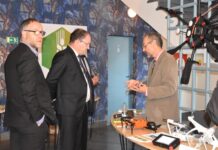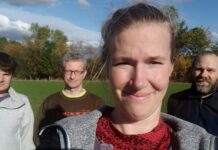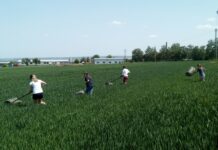Crop Research Institute · Function of Invertebrate and Plant Biodiversity in Agro-Ecosystems

Ambre Sacco, Ph.D.
Stats
Publications
7
Reads
972
Citations
5
Bio
Content of the mobility:
My work during this mobility is part of the European project FRESHH. The objective is to disentangle the role of agricultural management and landscape composition variables on biological control of weed seeds. This project focuses on the weed seed predation by carabid beetles, as they are one of the most abundant and diverse groups of invertebrates in agroecosystems and they are known for their wide diet gradient, ranging from strict granivore to strict carnivore, but with the majority of species remaining generalist and opportunistic. During the mobility, I take part in the experimentation in 15 winter wheat fields which includes the assessment of the carabid and weed communities and the measure of biocontrol services on seeds with sentinel preys.
Carabid communities are diverse but their species distribution is J-shaped with a handful of very abundant species and a lot of not-so-abundant ones. An additional objective to this mobility is therefore the assessment of the contribution to pest control of the not-so-abundant species, as well as verifying if this contribution is a sufficient argument to support their presence by implementing conservation practices. This study is approached through statistical analysis of already collected data (carabid community, carabid diet) from the European project BioAWARE and the French project ARENA.
About me:
Focus of my research:
I am an ecology researcher specializing on entomology and have just completed my 3-years PhD program at the Institute of Genetic, Environment and Plant Protection at INRAE (France). My PhD mainly focused on carabid beetles’ communities and their biocontrol services on pests, as well as the effects of conservation practices on both communities and services.
I had the luck to work with very different methodological approaches including community and services monitoring directly in the field with pitfall traps, emergence tents and live sentinel preys to assess the effects of conservation practices compared to conventional ones. Molecular gut content analysis allowed me to identify trophic interactions between carabid beetles and their preys and how those interactions vary over time. At last, feeding trials combined to molecular analysis were used to measure the voracity of different species of carabid beetles and estimate the potential biases in the prey DNA detection during molecular analysis. The combination of all those data is necessary to understand the potential of carabid beetles as biocontrol agents and I am currently designing an indicator based on them, that I hope, with future refinements, will lead to a biodiversity-based decision tool for farmers regarding pesticides use.
Education:
01/10/2019 – 13/12/2022: PhD, INRAE, IGEPP unit, Ecology and Genetic of Insects team, Supervisors: Elsa Canard & Manuel Plantegenest (Rennes, France)
Topic: Trophic network and ecosystem service of natural regulation of carabid communities in winter wheat fields
Key words: Food webs, Molecular gut content analysis, Conservation biological control, Community ecology
2016 – 2019: French Higher Education Institution in Agriculture, Food, Horticultural and Landscape Sciences, L’Institut Agro Rennes-Angers, Agrocampus Ouest Rennes
Specialization: Functional, Behavioural and Evolutionary Ecology in partnership with Rennes 1 University
2013 – 2016: Preparatory classes for the Grandes Ecoles in Biology, Chemistry, Physics and Earth sciences, Pierre-Gilles de Gennes Highschool (ENCPB), Paris
Professional experience:
01/2019 – 06/2019: End of study research internship (Master 2), INRAE, IGEPP unit, Ecology and Genetic of Insects team (Rennes, France)
Topic: Assessment of biocontrol services of arthropod communities in conservation agriculture
Key words: Community ecology, Conservation biological control, Carabids, Sentinel preys
07/2018: Junior consultant, TALAN, TALAN SOLUTIONS department (Paris, France)
Tasks: Preparation of an introductory course and tutorial on the R programming language, Smart Farming survey
11/2017 – 01/2018: Research internship (Master 1), Deep Karelia Engineering Office (Finland)
Topic: Assessment of the impact of human activities and infrastructures at the Finnish-Russian border on large mammals
Pedagogic experience:
126h of teaching experience during my PhD at L’Institut Agro, Agrocampus Ouest Rennes and University of Rennes 1, including lectures, practical work, supervision of projects and examination correction, from Bachelor 1 to Master 2 classes.
Supervision of research internships:
01/2022 – 07/2022: Master 2 student in ecology modelling
Topic: A hierarchical Bayesian model to quantify the predation rate of carabid beetles using molecular detection of prey DNA
04/2021 – 07/2021: Master 1 student in general ecology
Topic: Assessment of the biocontrol potential of generalist predators on aphids compared to alternative preys, case study of carabids
Mobility in a laboratory abroad:
November 2019: Training in molecular analysis of gut contents by Multiplex PCR and application to personal samples. Mobility carried out in Prof. Michael Traugott team, University of Innsbruck, Austria
First author publication:
Sacco–Martret de Préville A, Ortiz-Martinez S, Plantegenest M and Canard E (2022). Effect of Conservation Agriculture on Aphid Biocontrol by Generalist (Carabid Beetle) and Specialist (Parasitoids Wasp) Natural Enemy Communities in Winter Wheat. Front. Ecol. Evol. 10:893787. https://doi.org/10.3389/fevo.2022.893787
Co-authored publications:
Dubart, M., Alonso, P., Barroso-Bergada, D., Becker, N., Bethune, K., Bohan, D.A., Boury, C., Cambon, M., Canard, E., Chancerel, E., Chiquet, J., David, P., de Manincor, N., Donnet, S., Duputié, A., Facon, B., Guichoux, E., Le Minh, T., Ortiz-Martínez, S., Piouceau, L., Sacco-Martret de Préville, A., Plantegenest, M., Poux, C., Ravigné, V., Robin, S., Trillat, M., Vacher, C., Vernière, C., Massol, F., 2021a. Chapter Nine – Coupling ecological network analysis with high-throughput sequencing-based surveys: Lessons from the next-generation biomonitoring project, in: Bohan, D.A., Dumbrell, A.J., Vanbergen, A.J. (Eds.), Advances in Ecological Research, The Future of Agricultural Landscapes, Part III. Academic Press, pp. 367–430. https://doi.org/10.1016/bs.aecr.2021.10.007
Tosser, Véronique, Barrier, A., Canard, E., Cerrutti, N., Cervek, C., Chabert, A., Chapelin-Viscardi, J.-D., Lair, P., Lasserre-Joulin, F., Meiss, H., Plantegenest, M., Rouabah, A., Preville, A.S.-M. de, Therond, O., Villerd, J., Wartelle, R., 2022. ARENA: Assessment of pest biocontrol in arable crops by naturally occuring pest enemies: sampling network and tools to integrate this ecosystem service into integrated crop management. Innov. Agron. 85, 17. https://doi.org/10.17180/ciag-2022-vol85-art02



